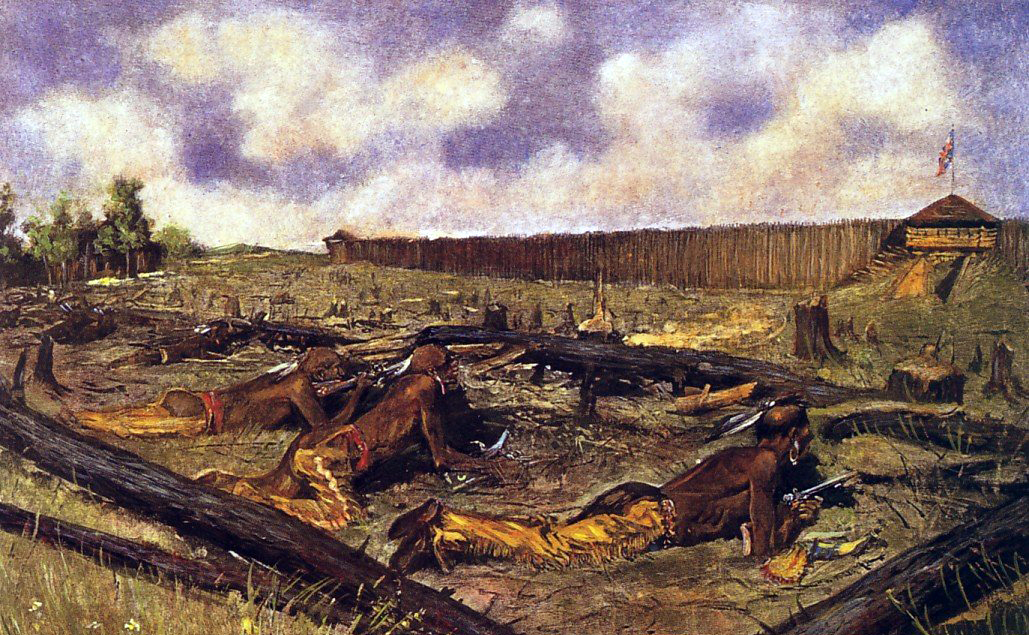Siege of Fort Detroit
The Siege of Fort Detroit, led by famed Odawa leader Bondiyak [Pontiac], was a five-month long siege in the summer and fall of 1763 of the former French settlement Fort Pontchartrain du Détroit or Fort Detroit. After the fort’s transition to British control at the end of the French and Indian War (1754-1763), Pontiac, like many Native peoples in the area, expected trade relations to continue as they had with the French. Yet, the British, with whom local tribal communities including the Potawatomi fought against in the French and Indian War, had proven to be different trade partners altogether. The British tried to assuage these anxieties among Native people in the area yet could not overcome the suspicion Native people had that British officials were withholding gunpowder for a potential surprise attack on their communities.
Channeling these fears into action, Pontiac, a leader in the Odawa community, gathered members of the Potawatomi, Huron, Ojibwe, and Odawa nations, among others, to prepare for an attack that would drive the British from Detroit. Trade disagreements and the British notion that they now owned the land lost by the French shifted Pontiac’s perspective on white encroachment. In rallying the nations’ warriors, Pontiac mounted a pan-tribal alliance against the white imperial presence in the northeast. What would follow would be a long siege lasting nearly half a year. Though Pontiac failed to seize control of the fort, the events he and the Native communities supporting his efforts set in motion led to King George III’s issuance of the Proclamation of 1763.
Citations
- Dowd, Gregory Evans. “Indigenous Catholicism and St. Joseph Potawatomi Resistance in “Pontiac’s War 1763–1766” in Ethnohistory. Durham: Duke University Press, 2016.
- Kaja, Jeffrey D. “‘‘Sometimes Bad People Take the Liberty of Stragling into Your Country’’ The Struggle to Control Mobility during Pontiac’s War.” Early American Studies: An Interdisciplinary Journal 14, no. 2 (2016): 225–57. https://doi.org/10.1353/eam.2016.0014.
- Middleton, Richard. Pontiac’s War: Its Causes, Course, and Consequences. New York: Routledge, 2007.
- Peckham, Howard H. Pontiac’s Siege of Detroit. Wayne University Press, 1951.

